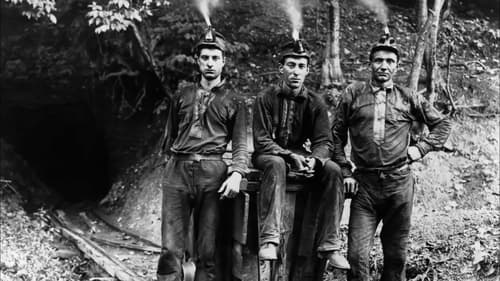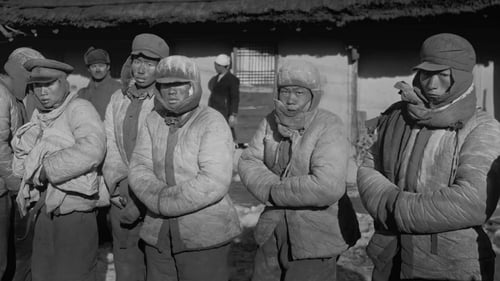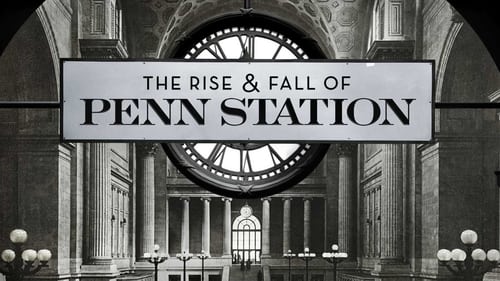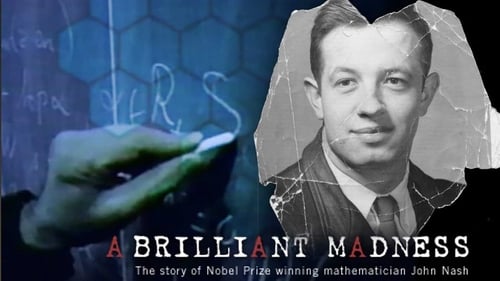
Producer
Raised in the small all-Black Florida town of Eatonville, Zora Neale Hurston studied at Howard University before arriving in New York in 1925. She would soon become a key figure of the Harlem Renaissance, best remembered for her novel, Their Eyes Were Watching God. But even as she gained renown in the Harlem literary circles, Hurston was also discovering anthropology at Barnard College with the renowned Franz Boas. She would make several trips to the American South and the Caribbean, documenting the lives of rural Black people and collecting their stories. She studied her own people, an unusual practice at the time, and during her lifetime became known as the foremost authority on Black folklore.

Director
Explore the life and times of author L. Frank Baum, the creator of one of the most beloved, enduring and classic American narratives. By 1900, when The Wonderful Wizard of Oz was published, Baum was 44 years old and had spent much of his life in restless pursuit of success.

Writer
Explore the life and times of author L. Frank Baum, the creator of one of the most beloved, enduring and classic American narratives. By 1900, when The Wonderful Wizard of Oz was published, Baum was 44 years old and had spent much of his life in restless pursuit of success.

Producer
Explore the life and times of author L. Frank Baum, the creator of one of the most beloved, enduring and classic American narratives. By 1900, when The Wonderful Wizard of Oz was published, Baum was 44 years old and had spent much of his life in restless pursuit of success.

Producer
Efforts of the United Mine Workers, led by Mother Jones, to organize coal miners in southern West Virginia at the beginning of the 20th century leads to violence and insurrection.

Director
Efforts of the United Mine Workers, led by Mother Jones, to organize coal miners in southern West Virginia at the beginning of the 20th century leads to violence and insurrection.

Producer
The feud between the Hatfields and McCoys is perhaps the most famous family conflict in American history. As legend has it, two neighboring families in the backwoods of Appalachia waged a crude and bloody war against each other over a stolen hog, an illicit romance, and longstanding grudges. Yet the events that took place near the end of the 19th century between the Hatfields and McCoys are part of a much richer and more complex narrative of the American experience.

Writer
The feud between the Hatfields and McCoys is perhaps the most famous family conflict in American history. As legend has it, two neighboring families in the backwoods of Appalachia waged a crude and bloody war against each other over a stolen hog, an illicit romance, and longstanding grudges. Yet the events that took place near the end of the 19th century between the Hatfields and McCoys are part of a much richer and more complex narrative of the American experience.

Director
The feud between the Hatfields and McCoys is perhaps the most famous family conflict in American history. As legend has it, two neighboring families in the backwoods of Appalachia waged a crude and bloody war against each other over a stolen hog, an illicit romance, and longstanding grudges. Yet the events that took place near the end of the 19th century between the Hatfields and McCoys are part of a much richer and more complex narrative of the American experience.

Director
The history of the Florida Everglades and the efforts to reclaim, control and preserve the vast area once viewed as a wasteland.

Editor
On March 11, 1959, Lorraine Hansberry’s 'A Raisin in the Sun' opened on Broadway and changed the face of American theater forever. As the first-ever black woman to author a play performed on Broadway, she did not shy away from richly drawn characters and unprecedented subject matter. The play attracted record crowds and earned the coveted top prize from the New York Drama Critics’ Circle. While the play is seen as a groundbreaking work of art, the timely story of Hansberry’s life is far less known.

Director
An amazingly harrowing story of the 17 day engagement of bloody combat and heroic survival in subartic temperatures. UN forces largely outnumbered and surrounded, due to a surprise attack led by 120,000 Chinese troops.

Director
Efforts of the United Mine Workers, led by Mother Jones, to organize coal miners in southern West Virginia at the beginning of the 20th century leads to violence and insurrection.

Writer
In 1957, decades before Steve Jobs dreamed up Apple or Mark Zuckerberg created Facebook, a group of eight brilliant young men defected from the Shockley Semiconductor Company in order to start their own transistor business. Their leader was 29-year-old Robert Noyce, a physicist with a brilliant mind and the affability of a born salesman who would co-invent the microchip — an essential component of nearly all modern electronics today, including computers, motor vehicles, cell phones and household appliances. SILICON VALLEY tells the story of the pioneering scientists who transformed rural Santa Clara County into the hub of technological ingenuity we now know as Silicon Valley.

Director
In 1957, decades before Steve Jobs dreamed up Apple or Mark Zuckerberg created Facebook, a group of eight brilliant young men defected from the Shockley Semiconductor Company in order to start their own transistor business. Their leader was 29-year-old Robert Noyce, a physicist with a brilliant mind and the affability of a born salesman who would co-invent the microchip — an essential component of nearly all modern electronics today, including computers, motor vehicles, cell phones and household appliances. SILICON VALLEY tells the story of the pioneering scientists who transformed rural Santa Clara County into the hub of technological ingenuity we now know as Silicon Valley.

Editor
The film interweaves the personal accounts of polio survivors with the story of an ardent crusader who tirelessly fought on their behalf while scientists raced to eradicate this dreaded disease. Based in part on the Pulitzer Prize-winning book Polio: An American Story by David Oshinsky, Features interviews with historians, scientists, polio survivors, and the only surviving scientist from the core research team that developed the Salk vaccine, Julius Youngner.

Director

Producer
In 1910, the Pennsylvania Railroad successfully accomplished the enormous engineering feat of building tunnels under New York City's Hudson and East Rivers, connecting the railroad to New York and New England, knitting together the entire eastern half of the United States. The tunnels terminated in what was one of the greatest architectural achievements of its time, Pennsylvania Station. Penn Station covered nearly eight acres, extended two city blocks, and housed one of the largest public spaces in the world. But just 53 years after the station’s opening, the monumental building that was supposed to last forever, to herald and represent the American Empire, was slated to be destroyed.

Director
In 1910, the Pennsylvania Railroad successfully accomplished the enormous engineering feat of building tunnels under New York City's Hudson and East Rivers, connecting the railroad to New York and New England, knitting together the entire eastern half of the United States. The tunnels terminated in what was one of the greatest architectural achievements of its time, Pennsylvania Station. Penn Station covered nearly eight acres, extended two city blocks, and housed one of the largest public spaces in the world. But just 53 years after the station’s opening, the monumental building that was supposed to last forever, to herald and represent the American Empire, was slated to be destroyed.

Writer
In 1910, the Pennsylvania Railroad successfully accomplished the enormous engineering feat of building tunnels under New York City's Hudson and East Rivers, connecting the railroad to New York and New England, knitting together the entire eastern half of the United States. The tunnels terminated in what was one of the greatest architectural achievements of its time, Pennsylvania Station. Penn Station covered nearly eight acres, extended two city blocks, and housed one of the largest public spaces in the world. But just 53 years after the station’s opening, the monumental building that was supposed to last forever, to herald and represent the American Empire, was slated to be destroyed.

Writer
The life of the Nobel Prize-winning mathematician and schizophrenic John Nash — the inspiration for the feature film A Beautiful Mind — is a powerful exploration of how genius and madness can become intertwined.

Producer
The life of the Nobel Prize-winning mathematician and schizophrenic John Nash — the inspiration for the feature film A Beautiful Mind — is a powerful exploration of how genius and madness can become intertwined.



















